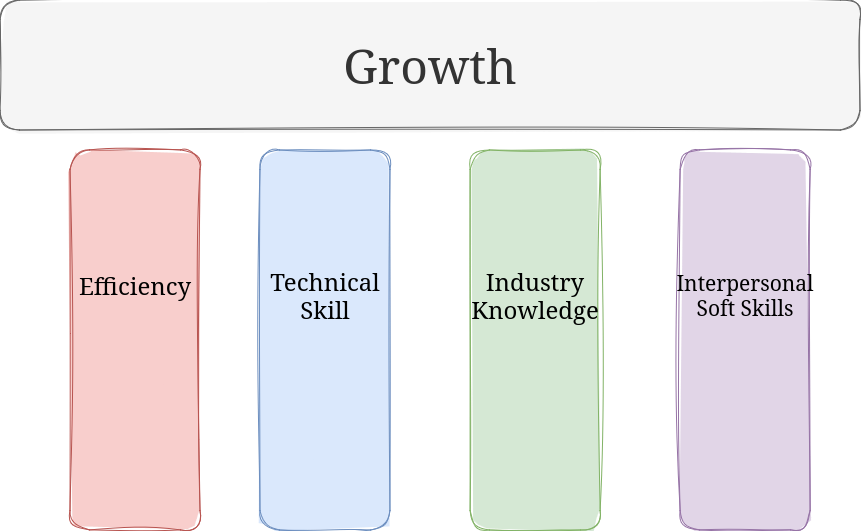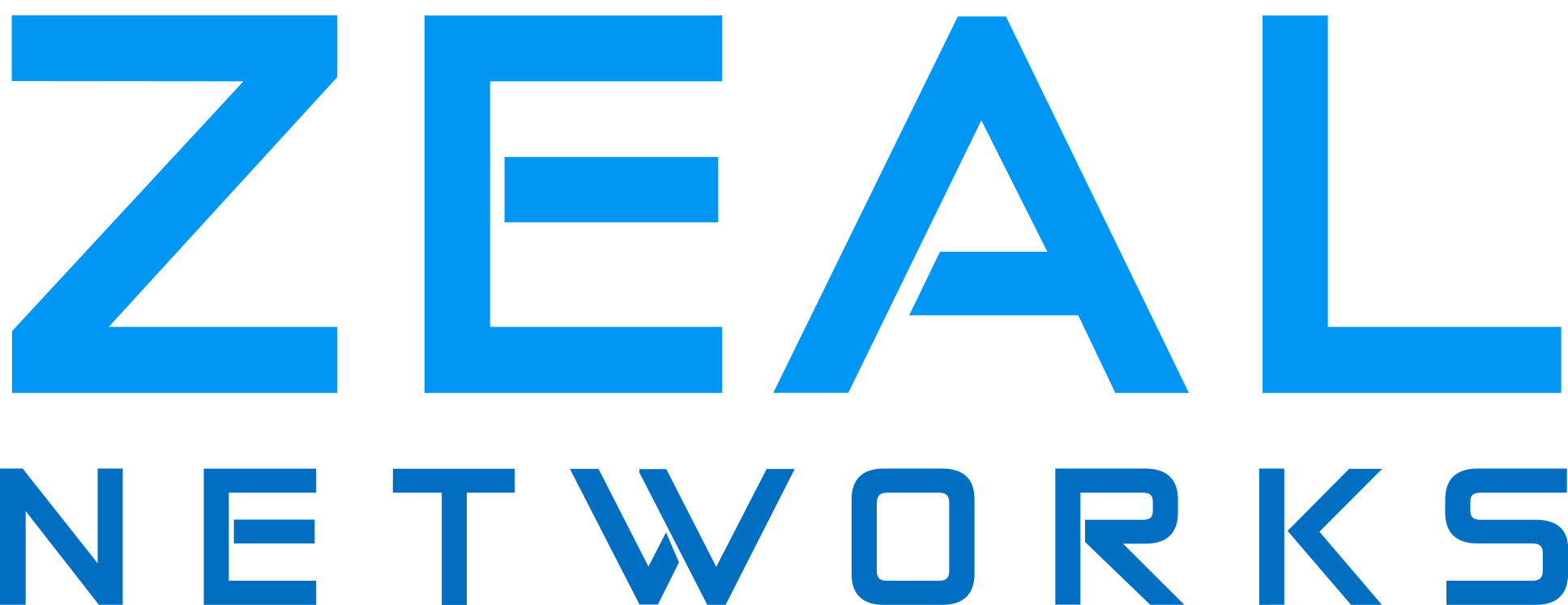On Personal Growth
Simply Musing Disclaimer
Growth
2023 was, for all intents and purposes, a growth year for me. There are so many things I'm proud of:
- Not asking permission to get involved.
- Making useful side-channel projects in my personal life/work life
- Applying the Steel Man method , or – more simply – giving compassion to various ideas and methods I've heard and or came across
- Branching outside of my field more than ever
- Checked my backups
- Re-iterated my ideas until they could be consumed by peers
- Used my RSS and Mastodon feeds as my own curated view of the tech industry
- Fixed a lot of things. Broke a lot of things. Did a lot of things.
- Suffered fools amicably.
You've Been Heard
Another thing I did was listen to a lot of my colleagues in my inner circle, and peers in my extended circle. The one common thing I've heard is a frustration with personal growth.
This manifests in many gripes, of which I'll name a few:
- Potential not being recognized
- Being passed over for jobs / promotions
- Failing to crack the code on a topic or technology
- Leaving debates and arguments with less-than-satisfying results
- Becoming demoralized and glazing over
- Feeling like your efforts are like Tetris [Source]
- Being 'intellectually bullied' in meetings or at work
- Feeling like you're on a sinking ship
- Becoming stagnant in your career
First of all, if any of these apply to you, I have a lot of compassion for you. A lot of these things really contribute to a lack of workplace, if not life, dissatisfaction. But if you don't read another line of this post, consider avoiding pessimism as much as possible. Eyvonne Sharp puts it so well, in this post.
A Long Time Ago
Once upon a time, when I was in school, we had a pretty superficial approach to learning Computer Networking. the common mob mentality was: Learn domain specific languages, type them fast, get certified.

Well, I'll tell you brother/sister/human, that just ain't it. There is so much more to growth in your career as a Network ___ than knowing/not-knowing the syntax to not destroy a trunk port; However, it's hard to get far without that knowledge.
My Unsolicited Method
After some thought and drawing in my notebook, I've defined the four pillars of growth. Here they are:

Two of these are stone-cold demonstratable: tech skills & industry knowledge. The other two are part of your marathon of becoming a tolerable employee and co-worker.
Let's break em' down.
Technical Skill
This one is pretty much a no-brainer. Without the skills to do the job, even with great strengths in other pillars, you will simply just piss off your colleagues or boss. It's not enough to know how to not break a trunk port, or how to do a commit-confirm, but it's a not-so-pretty trip to Mount Stupid when you don't have these concepts down.
Some of these skills you should tackle with a sprint pace, others you may want to consider a marathon pace. The best example of the former is probably the tech in your job description.
Here are some more ideas of where a Network Operator could grow:
- Mastering your Topology
- Textbook knowledge
- The syntax of the platforms you actually work with
- Learning about APIs & other control methods
- Network Management methods/tools
- Reading logs
- Labbing
- Scripting / Coding
- Linux (or *nix)
- DevOps methods
- Adjacent Knowledge (of other job titles you work with: Dev, QA, Sales)
- Writing
- Documentation
- Systems Administration
- VPNs (multi-functional discipline)
There is so much more than this. These are simply ideas.
The key idea is that it's okay to fake it – at least for a while. Yet, someday, you're gonna have to make it.
Industry Knowledge
You'd think this one is a no-brainer, but wow. This is where I see a lot of people fall down. You might be in deficit if you find yourself often saying:
The word "Cisco" as the solution to every problem ever conceived.
At my old company..
That's the way we do things here
What? I've never heard of that... (about the same topic more than once)
Lucky for you, this is the cheapest of the pillars to grow. There is so much free & high-quality information out there. It's collecting dust at work, it's in your library, it's on the web. Go get it.
Here are some places to grow your industry knowledge:
- Conferences
- Textbooks (you'll find gems only when you read cover to cover)
- Podcasts
- Blogs / RSS
- Mastodon
- RFCs / IETF
- Forums - HN, Lobste.rs,
Reddit, IRC, Slack communities, Discord - Newsletters
- Mailing lists
Interpersonal Soft Skills
This is an area where the techy type often struggles. Some of us are neuro-diverse, causing tension with peers who don't give gratuitous compassion. Some of us grew our tech skills in toxic environments. Some of us are still working on ourselves as members of society, and that's okay.
Unless your parents were excellent school teachers, or psychologists, this pillar of growth is likely part of your marathon. Never give up on it because it might be the most effective of the pillars to grow.
And for those that wonder why you're not recognized, it's probably due to a deficiency in this area. Sadly, everyone is their own marketing department.
Here are some ideas where you could grow these skills:
- Active listening
- Coaching peers
- Finding mentors
- Giving praise/credit
- Gathering feedback
- Concise explanations of topics
- Public/Group Speaking
- Forming tribes or working groups
- Seeking clarification on ideas
- Transparency with leaders
- Hallway tracks at conferences
- Therapy
- Leaves on a Stream method
- Understanding [A-]Synchronous communication methods
- Admitting fault
- Getting humbled
- Be a Scientist, not a Drill Sergeant
- Learn how to say no.
- Mindful self-censorship
A great manager of mine once said:
There's no point in having a bunch of geniuses if they can't work together
This is true at work, as much as it is true in Linux Kernel Development.
Efficiency
I'm not sure if this is the best word for the pillar. It seems rather controversial or ill-conceived to even type it, but it's the best word I have.
Don't mistake efficiency with hyper-productivity or other self-help guru BS. Think of it as KISS methodology, or being effective at bringing the best of you to every situation.
There's no point in being a technical whiz if you can't get your work done. Fight for your time to get stuff done, and consider your 80/20 rule.
Here are some things to hack back the lack of efficiency:
- Timeblocking [Source 1] [Source 2]
- Kanban / To-Do list to capture stuff for your timeblock
- Pomodoro / other focus methods
- Process review (call out things that don't work)
- Continuous Improvement (actively try to fix the problems)
- Find an effective work environment
- Make time for quiet time to get those "eureka" moments
- Setup your tools in a workflow that works well for you
- Sleep well. Make time for rest. The tired mind takes harmful shortcuts.
- Bundle Tasks together, when appropriate
- Read a lot until it becomes easier to parse information.
- Shortcuts & Key-bindings can be nice
Other opinions
Let me link some other opinions, out there on the web:










Here we are
There is so much of the above that I need to work on, am working on, and have had success in. Every individual journey & situation is different, these are simply my perspective on things.
As stated at the beginning, if you have ideas & gripes to add, please contact me.






